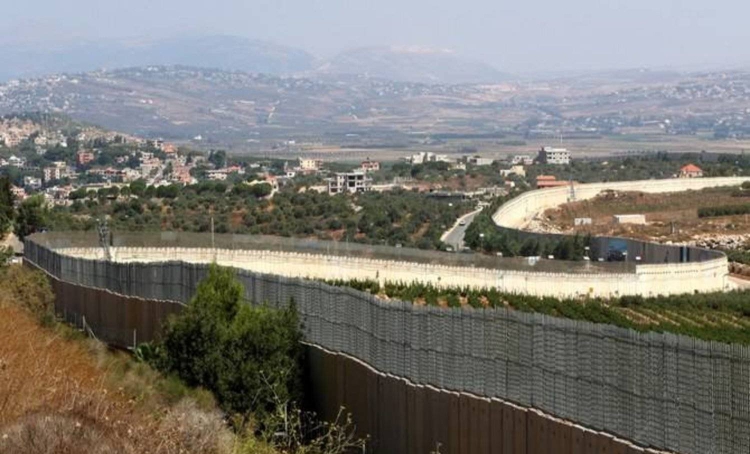By Adeyemi Adekunle
A rocket attack on a football field in the Israeli-occupied Golan Heights has heightened fears of a full-scale conflict between Israel and the Iran-backed Lebanese group Hezbollah.
The attack, which killed 12 children and teenagers in Majdal Shams, marks the deadliest incident in Israeli or Israeli-annexed territory since Hamas’ October 7 assault sparked the ongoing war in Gaza.
Israel has vowed to respond decisively, blaming Hezbollah for the attack, a claim the militant group denies.
The incident underscores the fragile state of peace in the region, where hostilities between Israel and Hezbollah have flared up since October 8, one day after Hamas launched its attack on southern Israel.
Background to the Conflict
Hezbollah, an ally of Hamas, began its current campaign of attacks to support Palestinians under Israeli bombardment in Gaza.
The group is part of a broader network of Iran-backed militants known as the Axis of Resistance. Despite calls for a ceasefire, Hezbollah has maintained that it will continue its operations against Israel until such a truce is established in Gaza.
The conflict between Israel and Hezbollah is deeply rooted. Since its founding by Iran’s Revolutionary Guards in 1982 to combat Israeli forces in Lebanon, Hezbollah’s ideology has been defined by its opposition to Israel.
The group views Israel as an illegitimate state occupying Palestinian lands and aims to see its dissolution.
Israel, for its part, considers Hezbollah the most significant threat on its borders, especially given the group’s expanding arsenal and influence in Syria.
The two have fought several wars, the last of which occurred in 2006. That conflict saw significant devastation, including the displacement of nearly one million people in Lebanon and 300,000 in Israel.
Impact of the Current Hostilities
The ongoing violence has already caused substantial suffering on both sides. Tens of thousands have fled their homes, with Israeli airstrikes targeting Hezbollah strongholds in southern Lebanon and the Bekaa Valley near the Syrian border. Israel has also conducted strikes elsewhere, including the assassination of a senior Hamas commander in Beirut on January 2.
Casualties have been significant. Israeli strikes have killed around 350 Hezbollah fighters and over 100 civilians, including medics, children, and journalists, according to various sources and a Reuters tally of death notifications.
In Israel, the death toll includes 23 civilians and 17 soldiers, with officials noting the significant political issue posed by the displacement of Israelis who had hoped to return home by the start of the school year.
Potential for Escalation
The situation remains precarious. Despite the intensity of current hostilities, the conflict is still seen as somewhat contained. Israeli Prime Minister Benjamin Netanyahu warned in December that Beirut could face the same fate as Gaza if Hezbollah escalates to an all-out war.
Hezbollah, while stating it does not seek to widen the conflict, has emphasized its readiness for any imposed war and claimed to have used only a fraction of its capabilities thus far. Past conflicts have shown the potential for widespread devastation. In 2006, Israeli strikes devastated large areas of Beirut’s Hezbollah-controlled southern suburbs, destroyed infrastructure, and forced mass evacuations.
Hezbollah’s arsenal has since grown, now including rockets capable of reaching all parts of Israel, as well as advanced weaponry demonstrated since October.
Can Escalation Be Avoided?
The future of the conflict may hinge on developments in Gaza. Efforts to secure a ceasefire and the return of Israeli hostages have stalled, but a truce in Gaza could quickly de-escalate tensions in southern Lebanon. The United States, which designates Hezbollah as a terrorist organization, has been central to diplomatic efforts aimed at reducing conflict.
There is a glimmer of hope for diplomacy. Hezbollah has indicated potential openness to a beneficial agreement for Lebanon, but insists that discussions can only occur once Israel ceases its Gaza offensive. Israel, similarly, has expressed a preference for a diplomatic solution to restore security in the north but is prepared for military action if necessary.
US official Amos Hochstein, who brokered a maritime boundary agreement between Lebanon and Israel in 2022, suggested on May 30 that while peace between Hezbollah and Israel is unlikely, establishing a recognized border and a set of understandings could mitigate some conflict drivers.
A French proposal in February, which included the withdrawal of elite Hezbollah fighters from the frontier, also aimed to address land border disputes.




